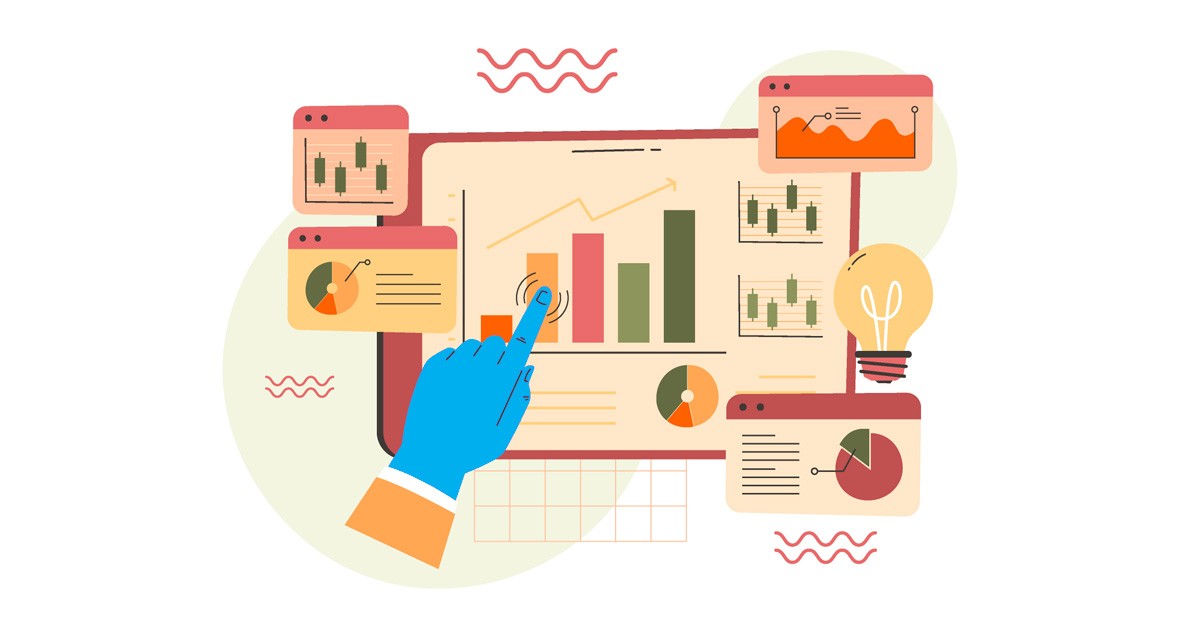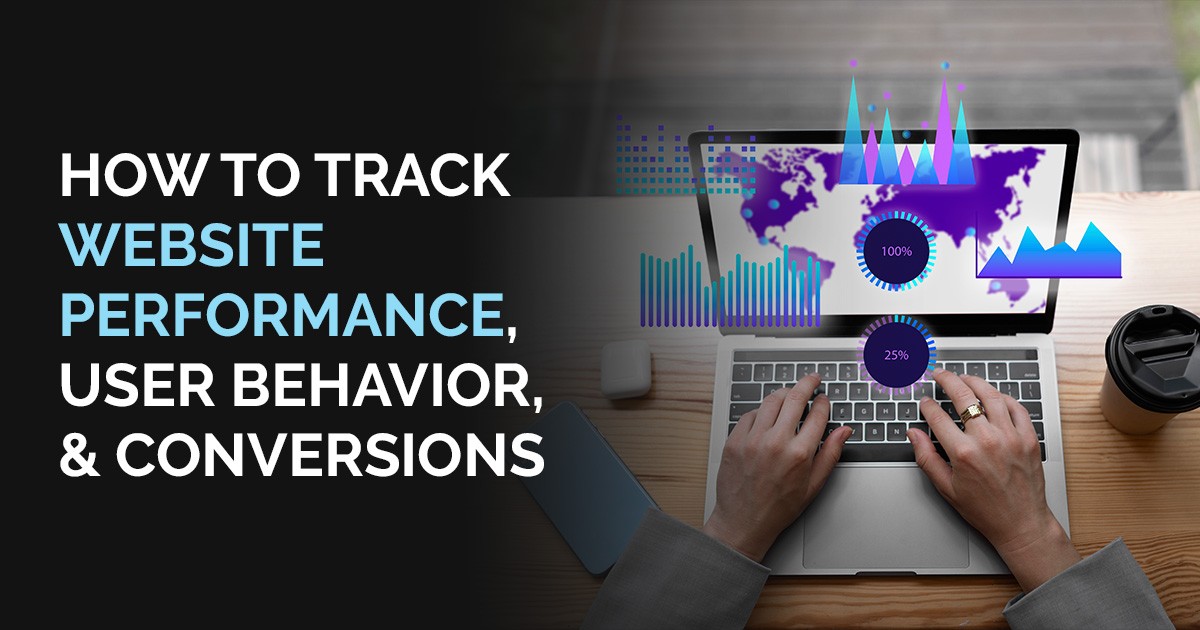
Introduction
For small businesses striving to make an impact in competitive markets, understanding your audience, website performance, and marketing effectiveness is important for growth and success. Here’s where Google Analytics plays a big role, as it is known to be a really powerful tool that can give excellent insights to how the search engines perceive your website.
In this ultimate guide, we'll talk about the essential features of Google Analytics, explore how to track website performance, user behaviour, and conversions, and provide tips for leveraging data to improve marketing strategies.
Google Analytics – A Quick Introduction on what it is and why it’s important for businesses
Google Analytics is a free online analytics service that is offered by Google. It gives businesses who have websites the ability to analyse and check certain aspects of how their site is performing. With this tool, you can check your site’s traffic and how visitors spend time and interact with it. Because of that, it is established that it can give your business ample data to help you in deciding what more you can do to improve your site’s performance on the search engines.

Why Google Analytics Matters for Small Businesses
For small businesses, every click, pageview, and conversion matters. That is why Google Analytics provides businesses an in-depth review of how visitors interact with your site, therefore, giving you a way to customise and plan out your marketing strategy; whether you would want to change up your user experience, which ultimately results in improving your reach. It doesn’t matter if you have a simple blog, an e-commerce shop, or one that provides and sells products and services – you can trust on Google Analytics to give you the best insights on how to move about your online growth.
Essential Features of Google Analytics
1. Tracking Website Traffic
This is possibly one of the most important features of the tool. With it, you can check and analyse how visitors find your site in the search engines, whether that be through organic search, via the social profiles, word of mouth, or simply because they searched for it and visited the site. With this information, you can then plan out what works best with how to market your business using your site.
Key Metrics:
- Sessions – The number of visits to your site.
- Users – The number of unique visitors.
- Pageviews – The quantity of pages visitors navigate through on your website.
- Bounce Rate – The percentage of single-page visits (visits in which the person left your site from the entrance page without interacting with the page).
- Average Session Duration – The average length of time users spend on your site.
2. User Behavior Analysis
Google Analytics provides insights into how users interact with your website. This includes which pages they visit, how long they stay on each page, and the actions they take. Understanding user behaviour can help you identify popular content, areas for improvement, and opportunities to increase engagement.
Key Metrics:
- Top Pages – The most visited pages on your website.
- Exit Pages – The last pages users visit before leaving your site.
- Behaviour Flow – A visualisation of how users navigate through your site.
- Site Search – If applicable, insights into what users are searching for on your site.
3. Conversion Tracking
For small businesses, conversions are often the ultimate goal. Whether it's making a purchase, signing up for a newsletter, or filling out a contact form, Google Analytics allows you to track these actions. This data is invaluable for understanding the effectiveness of your marketing campaigns and website design.
Key Metrics:
- Goals – Define specific actions you want users to take (e.g., completing a purchase, filling out a form).
- Ecommerce Tracking – For online stores, track transactions, revenue, and product performance.
- Conversion Rate – The proportion of visitors who successfully carry out a specific desired action.
How to Track Website Performance, User Behavior, and Conversions
- Setting Up Google Analytics
Step 1: Create a Google Analytics Account
- Visit the Google Analytics website and sign in with your Google account.
- Proceed with the instructions to make a new account for your website.
- You'll receive a unique tracking code snippet that needs to be added to your website.
Step 2: Install Tracking Code
- Use the tracking code given by Google Analytics.
- Insert the code into the header portion of your website's HTML coding.
- Alternatively, use a plugin or extension if you're using a content management system like WordPress.
- Setting Goals
Step 1: Define Your Goals
- Determine the desired actions you wish users to perform on your website.
- Examples include making a purchase, subscribing to a newsletter, or requesting a quote.
Step 2: Create Goals in Google Analytics
- In your dashboard, go straight to the Admin section.
- Under the View column, select Goals and click on + New Goal.
- Follow the prompts to define your goal type, such as destination (e.g., thank you page), duration (time spent on site), pages/screens per session, or event (e.g., button click).
- Analysing Data
Step 1: Navigate the Google Analytics Dashboard
- Explore the various sections of the Google Analytics dashboard, including Real-Time, Audience, Acquisition, Behavior, and Conversions.
- Each section offers unique insights into your website's performance.
Step 2: Customise Reports
- Use the customization options to create reports tailored to your specific needs.
- Choose date ranges, segments (e.g., new vs. returning visitors), and metrics to focus on what matters most to your business.
- Leveraging Data to Improve Marketing Strategies
- Identify High-Performing Content
- Use the Top Pages report to identify which content resonates most with your audience.
- Repurpose successful content or create similar pieces to drive engagement.
- Optimise User Experience
- Analyse behaviour flow to understand how users navigate through your site.
- Identify pages with high exit rates and make improvements to keep users engaged.
- Refine Marketing Campaigns
- Track the effectiveness of marketing campaigns by setting up campaign tracking.
- Use UTM parameters to tag URLs and monitor campaign performance in Google Analytics.
- Monitor Conversion Funnel
- Dive into the Conversion section to understand where users drop off in the conversion process.
- Make adjustments to streamline the funnel and improve conversion rates.
Tips for Leveraging Google Analytics
- Regularly Review Data
- Make it a habit to check your Google Analytics dashboard regularly.
- Set up automated reports to receive key metrics via email.
- Use Annotations
- Add annotations to mark important events or changes, such as website updates or marketing campaigns.
- Annotations provide context when analysing data over time.
- Explore Advanced Features
Google Analytics offers advanced features like custom dimensions, advanced segments, and cohort analysis.
Explore each of these components in greater detail to learn even more about your performance and audience.

Get Comprehensive Google Analytics for Your Small Business with Webplanners
For small businesses looking to take their Google Analytics game to the next level, partnering with a digital marketing agency like Webplanners can be invaluable. Webplanners offers comprehensive Google Analytics services tailored to small businesses, including:
- Setup and Configuration – Ensure your Google Analytics account is properly set up with accurate tracking codes and goals.
- Custom Reporting – Receive customised reports that focus on the metrics most important to your business goals.
- Data Analysis – Get expert analysis of your Google Analytics data to uncover insights and opportunities.
- Strategy Development – Work with experienced professionals to develop a data-driven marketing strategy based on your Google Analytics insights.
With Webplanners at your side, you can increase your online presence, enhance user experience, and generate growth by fully utilising Google Analytics.
Conclusion
For small businesses, Google Analytics is significant since it provides plenty of data that can be used to enhance website performance, analyse user behaviour, and increase campaigns. Small businesses can make successful decisions by properly evaluating data, establishing goals, and grasping the fundamental aspects of Google Analytics.
FAQs
Is Google Analytics difficult to set up for a small business website?
Setting up Google Analytics for a small business website is relatively straightforward. After creating an account, you'll receive a tracking code to add to your website's HTML. Many content management systems like WordPress offer plugins for easy installation. Google also provides step-by-step guides to help with the process.
What are 'goals' in Google Analytics, and why should I set them up?
Goals in Google Analytics are specific actions you want users to take on your website, such as completing a purchase, signing up for a newsletter, or filling out a contact form. Setting up goals allows you to track and measure the success of these actions, providing valuable insights into your website's performance and the effectiveness of your marketing efforts.
How often should I check my Google Analytics data as a small business owner?
It's recommended to check your Google Analytics data regularly, at least once a week or bi-weekly. Regular monitoring allows you to stay informed about website traffic trends, user behaviour, and campaign performance. You can also set up custom reports and email alerts to receive key metrics and notifications automatically.
Suggested Read: Closing the Gap with Keyword Optimization for SEO Success


